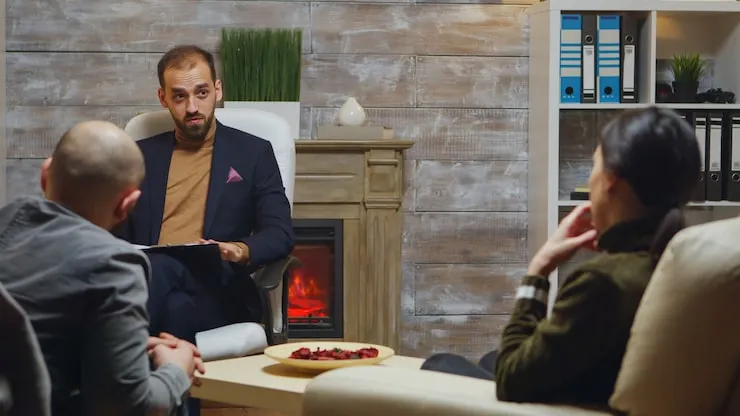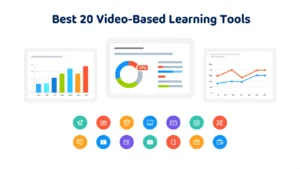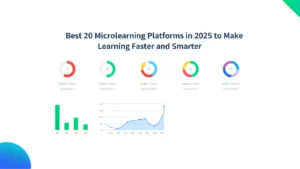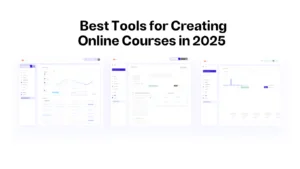Imagine this: you’ve been accepted to Oxford or Cambridge, two of the most prestigious universities in the world. You’ve worked tirelessly through the application process, aced your exams, and finally made it to the interview stage. Now, it’s time to prove that you belong. But here’s the catch: it’s not just about what you know; it’s about how you think. How well can you handle the unexpected? How effectively can you demonstrate your intellectual curiosity and problem-solving abilities under pressure?
The Oxbridge interview is one of the toughest academic tests a student can face. Known for their intensity and unpredictability, these interviews are designed to stretch your thinking, challenge your assumptions, and see how you approach complex problems. It’s not uncommon for candidates to be asked bizarre or offbeat questions that don’t seem to make sense. These questions might be difficult, but they’re not there to trip you up—they’re there to see how you think.
At Pearl Lemon Academy, we understand the challenges Oxbridge candidates face, and we’re here to provide you with the tools and strategies you need to excel. Whether you’re worried about handling academic questions or you’re dreading the infamous “bizarre” questions, we’ve got you covered. In this guide, we’ll break down the types of Oxbridge interview questions, share tips on how to answer them, and offer insights into preparing for this critical part of the admissions process.
Connect with us today!
What You Can Expect from an Oxbridge Interview

The Oxbridge interview is unlike any other interview you’ve likely encountered. Whether it’s your first serious university interview or not, the process is uniquely rigorous and designed to assess your ability to handle difficult concepts, think on your feet, and engage in intellectual conversation.
Understanding the Purpose of the Oxbridge Interview
Oxbridge interviews are famous for being unpredictable, and for good reason. While most interviews focus on testing your knowledge, Oxbridge’s aim is to assess how well you think and how you approach problems. It’s about demonstrating that you can engage with difficult material in a thoughtful and thorough way.
Here’s the thing: Oxbridge doesn’t expect you to have all the answers. What they’re really looking for is how you approach questions, how you think through issues, and how you communicate your ideas. So, it’s not just about getting the right answer—it’s about showing your ability to reason and think critically.
Interview Formats and Timings
Oxford and Cambridge have different interview structures, but they’re both designed to test your ability to think deeply about your chosen subject.
- Oxford Interviews: You might have a one-on-one interview with an academic tutor or a panel interview, where you’ll be asked to explain your thinking on a variety of topics. These can be highly subject-specific or more abstract.
- Cambridge Interviews: Often more structured, with two to three interviewers who will guide the discussion and ask detailed, subject-specific questions. Cambridge tends to favor a more formal, academic approach.
Are You Ready for the Oxbridge Challenge?
Before diving deeper into how to answer difficult questions, schedule a consultation to discuss how we can specifically help you prepare.
Types of Oxbridge Interview Questions

Oxbridge interview questions fall into several broad categories. Knowing what to expect and how to handle each type can give you a serious advantage.
Traditional Academic Questions
These are subject-based questions that test your depth of knowledge and your ability to apply it to new situations. You might be asked to analyze a concept from your personal statement, apply theory to a real-world problem, or discuss an academic topic in great detail. For example:
- “Why does the UK have a parliamentary system?”
- “Can you explain how the laws of physics apply to the motion of the planets?”
The key to answering these questions is depth. Oxbridge interviewers want to hear your thought process, not just your conclusions.
Bizarre or “Trick” Questions
These are the infamous questions that are designed to throw you off and test your creativity and critical thinking. Don’t be afraid of these questions—they’re there to see how you cope with the unexpected. Examples include:
- “How would you organize a revolution?”
- “If you were a magpie, what would you do?”
While the answers may seem irrelevant at first, it’s essential to remain calm and think through the problem out loud. The aim is to demonstrate how you approach complex, abstract problems and showcase your ability to think on your feet.
Scenario-Based Problem-Solving Questions
These questions test your ability to handle problems that you may not have encountered before. They often require you to use logic, creativity, and intellectual rigor to come up with a solution. Examples might include:
- “If a tree falls in a forest and no one is around to hear it, does it make a sound?”
- “If you could redesign the education system, how would you do it?”
These questions may seem abstract or even silly, but the goal is to understand how you think through problems and how well you can communicate your reasoning.
Moral or Ethical Dilemmas
Some Oxbridge interview questions challenge your ethical reasoning. They may involve considering difficult moral decisions, offering insight into your personal values, and how you process complex issues. For example:
- “Is it morally wrong to lie, even if it’s for a good cause?”
- “Would you steal to feed your family?”
These questions require a balanced, thoughtful response. Don’t rush into an answer. Instead, present both sides of the argument and show that you’ve thought through the ethical considerations.
How to Prepare for Common Oxbridge Interview Questions

Knowing the types of questions you might face is just the start. You also need a strategy for answering them. Here’s how you can prepare for some of the most common Oxbridge interview questions:
Anticipate Subject-Specific Questions
Before your interview, make sure to review your personal statement carefully. Your interviewers will likely base many of their questions on what you’ve written, so be prepared to discuss the topics you’ve mentioned in depth. They may ask follow-up questions to see how well you understand the material and how deeply you’ve engaged with the subject.
- For example, a History candidate might be asked to explain the long-term consequences of a specific historical event.
- A Biology applicant could be asked to discuss the implications of a particular scientific theory.
Think About “Big Picture” Questions
You’ll also likely face more general, philosophical questions about why you chose your subject and what you hope to gain from your time at Oxbridge. These questions aim to gauge your long-term interests and intellectual curiosity.
For example:
- “Why did you choose this subject?”
- “What is the most exciting part of your subject?”
Be Prepared for “Bizarre” or Abstract Questions
When faced with a bizarre question, remember this: It’s not about the answer. It’s about your reasoning. Oxbridge interviewers are less concerned with whether you give the “right” answer and more interested in how you arrive at an answer. Take your time, think out loud, and engage with the question creatively.
How to Answer the Most Challenging Oxbridge Interview Questions

When you face a particularly challenging question, here are a few strategies to help you handle it:
Think Aloud
If you don’t know the answer right away, don’t panic. Think aloud. Walk the interviewer through your thought process, explaining how you would tackle the problem or break it down into manageable pieces.
Don’t Rush to Answer
If you’re unsure, take a moment to pause and gather your thoughts. Oxbridge interviewers don’t expect instant answers—they want to see your reasoning.
Use Examples from Personal Experience
If applicable, try to tie your answer to something you’ve studied, read, or encountered in your personal life. This demonstrates your ability to think critically and connect different pieces of information.
Practice Under Pressure
Simulate interview conditions with mock interviews. This will help you get used to answering challenging questions under pressure and will allow you to fine-tune your response strategy.
Technical Strategies for Managing an Online Oxbridge Interview

With many Oxbridge interviews conducted online, it’s crucial to be prepared for the technical aspects of the process. Here’s what you need to know:
Pre-interview Setup:
Make sure your equipment works:
- Test your internet connection.
- Ensure your camera and microphone are functioning properly.
- Choose a quiet, well-lit space for the interview.
Eye Contact and Presentation:
Make sure you’re looking at the camera, not the screen, to maintain eye contact with the interviewer. Dress in smart, professional attire, and avoid distractions in your environment.
Real-Life Case Studies: Successful Oxbridge Interviewees

Case studies from past candidates can provide great insight into how these strategies play out in practice:
- Case Study 1: A Physics Candidate at Oxford. A Physics applicant was asked why the sky is blue. They calmly explained the scattering of light, discussing how molecules in the atmosphere interact with sunlight. This logical, clear approach impressed the interviewers and demonstrated strong critical thinking.
- Case Study 2: A Law Applicant at Cambridge A Law candidate faced an ethical dilemma: “Is it morally wrong to lie for a good cause?” The applicant thoughtfully considered both sides, discussing moral relativism and absolutism. Their balanced answer showed depth in ethical reasoning, which led to success.
- Case Study 3: A Philosophy Candidate at Oxford A Philosophy candidate was asked if machines can think. Rather than rushing to an answer, they found philosophical concepts like consciousness and referenced thinkers like Descartes and Turing, showcasing intellectual depth and critical engagement.
- Case Study 4: A Medicine Applicant at Cambridge. A Medicine candidate was asked how to diagnose a patient who was reluctant to share information. The student emphasized building rapport and patient trust, demonstrating empathy and a patient-centered approach, which impressed the interviewers.
These real-life examples show how careful preparation and a calm, strategic approach can help you manage even the most difficult Oxbridge interview questions.
Why Choose Us?
At Pearl Lemon Academy, we specialize in equipping students with the essential skills to excel in the Oxbridge interview process. Our approach is simple: we focus on helping you think critically, communicate effectively, and remain calm under pressure. Here’s why you should choose us for your Oxbridge interview preparation:
- Customized Preparation: We provide personalized coaching, focusing on the specific subject and types of questions you’re most likely to encounter.
- Proven Success: Our strategies have helped students gain admission to Oxbridge, with many offering feedback on how our preparation made the difference.
- Expert Guidance: With our experience, we know exactly how to tackle the most challenging and unexpected questions.
- Real-World Practice: We simulate mock interviews, so you know exactly what to expect and how to perform when the pressure’s on.
- Confidence Boost: We help you build the confidence needed to handle any interview question with ease and poise.
Choosing us means you’ll be fully prepared, focused, and ready to face your Oxbridge interview with confidence.
Book a Strategy Call now!
FAQs About Oxbridge Interviews
Q1: What’s the best way to prepare for Oxbridge interview questions?
Focus on understanding your subject, reviewing your personal statement, and practicing with mock interviews. Think critically and explain your reasoning rather than memorizing answers.
Q2: How do I handle bizarre Oxbridge interview questions?
Stay calm, think through the question aloud, and explain your reasoning. Oxbridge is testing your problem-solving and creativity, not just your knowledge.
Q3: Will they ask about my extracurricular activities?
Yes, they may ask about your hobbies to gauge your interests and how they relate to your studies. Be ready to discuss how they’ve shaped you.
Q4: How long is an Oxbridge interview?
Interviews typically last 20-40 minutes, depending on the subject and interview format.
Q5: Should I prepare specific answers or just general knowledge?
Focus on general preparation and critical thinking rather than memorizing specific answers, as the questions can vary.
Q6: Can I practice Oxbridge interview questions with others?
Yes, practicing with peers or mentors through mock interviews is highly beneficial.
Q7: What should I wear?
Wear smart, professional attire. If it’s an online interview, make sure the top half is presentable.
Ready to Ace Your Oxbridge Interview?
At Pearl Lemon Academy, we specialize in helping candidates prepare for the intense and unpredictable Oxbridge interview process. Whether you need help with academic questions or strategies for handling bizarre interview questions, we’re here to guide you every step of the way.




